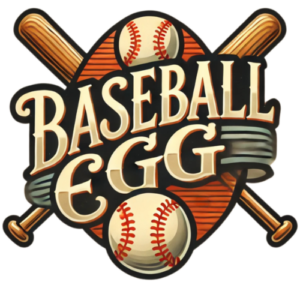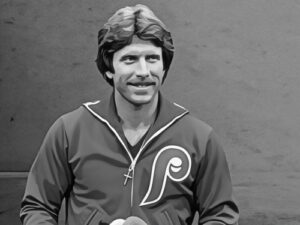This is part of our series on the “Ultimate Franchise Players” in baseball history. These players are not necessarily the greatest players in franchise history. They are selected because they have a unique characteristic that made them one of the most important, or beloved, or emblematic players for that franchise. Look for a new Ultimate Franchise Player article every week or two.
When Gene Autry opened up his bank vault to sign Don Baylor (and Joe Rudi) in November of 1976, he responded with cautious glee. It was a time when free agency and million dollar checks loomed over the future of the game. Free agency was a novelty, and no one knew what it meant.
“I’ve hocked a horse. I’ve got a saddle left, but that’s about it,” Autry said.
The Ultimate Angel: it has to be a free agent. It has to be someone who played for The Cowboy. And Don Baylor was the first free agent to ride into town to play for Mr. Autry.
During the 1976-77 offseason, baseball was trying to figure out what the “free agent re-entry draft” meant. Some teams, like the two-time defending World Champion Cincinnati Reds, refused to participate in the free agent draft. The Athletics were being gutted, reeling after the collapse of their dynasty, and team owner Charlie Finley was planning his exit strategy as his former stars signed new deals. He would have sold his mule for the right price.
But Angels’ owner Autry and a few others, namely George Steinbrenner in New York, were willing to dive into the waters of free agency without shark repellent. Even if it didn’t make sense.
“I still don’t believe all of this is good for baseball. For that reason, I’m not happy about it,” Autry said two days after he signed Baylor, and one day after he signed another free agent outfielder, Joe Rudi. The phones in the Angels’ front office were ringing off the hooks with request for season tickets. Less than a week later the team signed free agent second baseman Bobby Grich.
Don Baylor would quickly convince Gene Autry that free agency was a great thing for baseball. The Cowboy signed more free agents in the following years, happily trying to buy a World Series trophy for his beloved franchise.
The year before he became an Angel, Baylor hit a home run to beat them on Opening Day. Two days later his hand was broken by a pitch. He played six weeks with a soft cast on his hand and only missed five games all season. Even though his power was sapped by the hand injury, Baylor soldiered on. He was a warrior. That’s why the Angels wanted him.
Of the three coveted free agents that Autry signed in the winter of 1976, Baylor was the healthiest and most successful. He was ensconced as the team designated hitter, and his home runs grew each of his first three seasons: 25, 34, and 36 in 1979, the same year he drove in an unthinkable 139 runners.
At the plate, #25 was like granite, bravely standing close to the plate. He usually led the league in being hit by pitches, one of the reasons he was once called “The Next Frank Robinson.” Being the Only Don Baylor, was enough. Pitches bounced off him like he was made of iron. He was named AL Most Valuable Player in 1979, the year everything changed for The Cowboy and his baseball team.
The Angels and Gene Autry were an accidental marriage. When the league decided to expand by two to ten teams in 1961, former slugger Hank Greenberg had a tentative agreement to purchase the new Los Angeles franchise. Greenberg solicited Autry to provide a broadcast network for his new franchise, but at a league meeting he was thwarted by changes to the agreement and stormed out. A reluctant Autry stepped in and became the owner. The old movie star’s life would never be the same.
The Angels were not a laughingstock, not like other expansion teams. They drafted veterans and wisely scouted young pitchers. In the 1960s they drifted to the middle of the pack and even briefly contended in their second season. But even though they avoided outright embarrassment, the Angels were usually irrelevant. By the mid-1970s, they were merely “that other southern California teams.” Baylor’s arrival changed that.
From the moment Baylor donned the blue hat with the red “A” and yellow halo, things were different. People may have never taken the Angels seriously, but here was a serious man. Teams may have never feared the Angels, but here was a fearless player. In 1979, Baylor drove them to their first division title. The franchise has been relevant ever since.
The $1.6 million the Angels paid Baylor (nearly as much as the franchise cost Autry back in 1961), proved to be the best money they ever spent.
Top 100 Left Fielders of All-Time >
The Angels’ All-Time Team >






